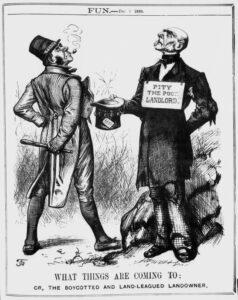Dear Editor,
Cam Gordon’s piece, “Follow the money: Landlords spend big in city election” misses important points.
Gordon talks about the role of special interest money in Minneapolis but skips Minneapolis for the Many, the group supporting far-left and socialist candidates. In its 2024 Campaign Finance Board Report, Minneapolis for the Many reported 87% of its funding came from one organization, the Movement Voter PAC or MVP-PAC.
Who is the MVP-PAC? It is a national PAC out of Massachusetts (FEC ID# C00728360). In the last two years, it raised $52M. Only 1.2% of its donors were from Minnesota. It funds over 300 “grassroots” organizations. In its own words:
“The Movement Voter Project is a one-stop shop for investing in year-round organizing and movement building to shift culture, win elections, and transform policy.”
They say they are responsible both for the 2023 exorbitant spending from the Minnesota Legislature as well as the current far-left Minneapolis City Council. In their own words,
“In Minnesota, MVP partners reaped the fruits of over a decade of consistent, strategic organizing and electoral power-building, which enabled Democrats to pass a progressive agenda so bold that it has become a blueprint for state governance. We also helped elect progressive majorities on the Minneapolis and St. Paul City Councils.”
Yeah, they are responsible for our city government, not us folks that live here. According to them, we are just their sheep.
And what has been the mission of the local organization We Love Minneapolis? To turn out Democrats to caucuses and conventions. Hard to see that as nefarious as Gordon paints it.
Gordon also misses a big secret of how campaigns work today. In 2023, campaign money was NEGATIVELY CORRELATED with winning. In 2023, Minneapolis elected nine socialist or far-left Council Members. Clearly moderates lost. But what did spending look like? The moderate group, All of Minneapolis substantially outspent the far-left groups.
Organization Spending
All of Mpls (moderate) $700,000
Mpls for the Many (far-left) $210,000
Take Action MN (far-left) $100,000
Faith in MN (far-left) $40,000
Ward 7 Ward 8 Ward 12
Moderate $130,000 $150,000 $120,000
Far-Left $70,000 $65,000 $60,000
% of Moderates 54% 43% 50%
In the three most contested wards, moderates spent about double that of the far-left, but lost in two wards. Ward 8 was decided by a mere 38 votes.
Ward 7 Ward 8 Ward 12
Moderate 3,878 3,894 5,592
Progressive 4,055 3,856 6,525
Winning Margin 177 -38 933
In 2023, money was negatively correlated with winning.
What is more valuable than money? Attention. Attention is more valuable than money. Today voters are not activated by the things that money buys – phone calls, mailers, door knocks – but by social media influencers and online activist groups. Minneapolis has a massive online activist industrial complex pounding out emails and tweets and posts to influence voters. And none of this shows up on campaign finance reports. You have no idea who paid for that post you are reading. It is amusing that Gordon quotes Taylor Dahlin because she is trying to build herself as one of the leading social media influencers in Minneapolis. No one is asking who is funding her. But they should.
The most important thing to social media is bringing back your eyeballs. What does that? Respectful debate? Kindness? Understanding of one another? No. Drama. Extremism. Name calling. Anger. Popular lies. Destroying community is baked into the bones of how social media works. Social media influencers and organizations are the reason we have such an extreme, dysfunctional government, and you have no idea who is paying them.
I am going to end this with Gordon’s own quote: “In the months ahead voters might want to consider listening less to these groups, and more to friends and neighbors they respect and, most importantly, to the candidates themselves.”
Carol Becker
————————————–
Editor’s Note:
In the column in question, which focused on the first quarter of 2025 and the new group calling themselves “We Love Mpls,” Minneapolis for the Many was not skipped. Gordon said, “Minneapolis for the Many did not file a first quarter report, which is not required if they did not spend or became obliged to spend more than $200 to influence local elections between January 1 and March 31.” Minneapolis for the Many was also discussed at greater length in January’s column that looked at 2024 spending by the two independent expenditure committees working to impact city elections at the time.
Rebuttal
I strongly object to Carol Becker’s characterization of the landlord lobby (that is spending tons of money in this coming election) as Moderate, and her characterization of the opposition lobbying group as Far Left.
Webster defines moderate as “avoiding extremes of behavior or expression” but also as “mediocre.” In her mind the landlords are middle of the road and everyone else is speeding and driving all over the place. Carol’s argument reminds me of Jim Hightower’s book, “There’s Nothing in the Middle of the Road But Yellow Stripes and Dead Armadillos.”
And also, Dylan’s verse:
“Come mothers and fathers throughout the land
And don’t criticize what you can’t understand
Your sons and your daughters are beyond your command
Your old road is rapidly agin’
Please get out of the new one if you can’t lend your hand
For the times, they are a-changin’”

‘Pity the poor landlord’ — British cartoon (1 December, 1880) showing a landlord in shabby clothes begging for rent from an Irish tenant.
The great motivating factor for the landlord lobby is to try to stop the City Council from enacting rent control.
In 2021, Minneapolis voters approved a Charter Amendment for the City Council to regulate rents on private residential property in Minneapolis. Unfortunately, what happened next was the Council turned it over to the Planning Department, and staff studied the fiscal impacts and the effect on future development, and the study concluded (as Planning Department staff studies always do) that we need more studies.
Currently, they’re studying St. Paul’s experiment with rent control. St. Paul’s rent control ordinance went into effect in 2022 and was modified in 2023. It sets a 3% limit on annual rent increases for residential properties, but newly constructed units (within the last 20 years) and affordable housing are exempt from the cap, and a landlord can raise the rents up to 8% plus inflation for a new tenant.
Should the City try to control rents? Do we have a responsibility to try to protect the working poor from being priced out of their homes, or are we better off if we let the free market decide the price of housing?
Carol and the landlord lobby believe the public is best served by the free market deciding the price of rent, and anything else is far-left government interference.
The City Council and the voters who approved the Charter Amendment seemed to be saying the government does have a responsibility to care for renters being priced out of their homes. They seem to be saying that government must care for the less fortunate, that rich home-owners have some responsibility to take care of poor tenants. They seem to be saying, “From each according to their ability, to each according to their needs.”
 “From each according to their ability, to each according to their needs,” that sounds like communism.
“From each according to their ability, to each according to their needs,” that sounds like communism.
Actually, there’s nothing like that in the Communist Manifesto. The closest Marx and Engels came to that notion was in favoring a graduated income tax, free public education and an end to child labor.
You’ll find almost that exact phrase, though, in the description of the early Christian communities in the Bible:
Acts of the Apostles, Chapter 4, Verses 32-35. “Now the full number of those who believed were of one heart and soul, and no one said that any of the things that belonged to him was his own, but they had everything in common. And with great power the apostles were giving their testimony to the resurrection of the Lord Jesus, and great grace was upon them all. There was not a needy person among them, for as many as were owners of lands or houses sold them and brought the proceeds of what was sold and laid it at the apostles’ feet, and it was distributed to each as any had need.”
That Christian ethic was the foundation upon which the first American government was built.
On the ship to America, Pilgrims wrote the Guilford Covenant: “We whose names are herein written, intending by God’s gracious permission, to plant ourselves in New England, we do faithfully promise each for ourselves and families and those that belong to us, that we will, the Lord assisting us, sit down and join ourselves together in one entire plantation and to be helpful to the other in any common work, according to every man’s ability and as need shall require, and we promise not to desert or leave each other on the plantation but with the consent of the rest, or the greater part of the company, who have entered into this engagement.
“As for our gathering together into a church way and the choice officers and members to be joined together in that way, we do refer ourselves until such time as it shall please God to settle us in our plantation.
“In witness whereof we subscribe our hands, this first day of June 1639.”
Loving your neighbor and caring for them, it turns out, is as American as apple pie.























As I noted, what you call the “landlord lobby” worked to turn out Democrats for caucuses. Why denigrate people working to strengthen democracy?
Rent control doesn’t produce cheaper housing. It constricts supply and drives up prices overall. Instead of working to create programs for the poor, we need programs that help people not be poor. If you were serious about housing policy you would shift from talking about rent control to home ownership, especially for low income persons. But what would happen if we really actually had programs that helped people not be poor?
What happens in your story where all the apostles sell their stuff, distribute their money and then no one has anything? Do they all starve? Look for another person’s money to take? Kinda like socialists. History is really really clear that socialism and communism failed. Badly. And why you have to go back 2000 years to find someone advocating for it. If it is such a good system it would be everywhere. But. It isn’t.
We need to help people build wealth. And that ain’t rent control.